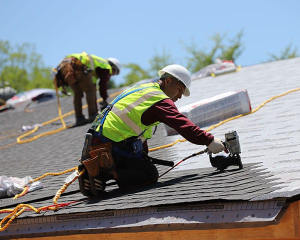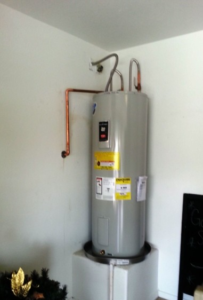Surgeons work in hospitals, clinics, surgical centers, private practices, ambulatory surgery settings and government service programs (such as the uniformed services). They collaborate with other healthcare professionals to provide comprehensive patient care. Surgeons are expected to be highly skilled and must be able to make quick decisions in high-pressure situations. They typically work long hours and are on call outside of normal working days. Learn More Here!
The average working day of a surgeon includes conducting preoperative assessments, performing surgical procedures and providing post-surgical care to patients. They also spend time meeting with patients, writing reports and undertaking administrative tasks. The most attractive tasks for surgeons were those related to surgery and medical care, indicating that they are motivated by their core role. Moreover, surgeons are motivated by the sense of personal responsibility and leadership that come with their roles.

In addition to the above-mentioned duties, surgeons may also specialize in a particular field. For example, they may focus on treating conditions of the blood and circulatory system such as aneurysms and stroke. They can also choose to specialise in treating vascular diseases such as atherosclerosis, which is the hardening of the arteries.
Many surgeons are employed in private practice, where they treat patients through a combination of outpatient and inpatient appointments. Others work in the hospital system where they may be responsible for managing a number of surgical departments. Some surgeons are involved in academic research and can be found in universities and colleges, teaching students about their field of expertise.
The workplace of a surgeon can be stressful, particularly for those in more junior positions. For instance, new residents may feel unprepared for the demands of their jobs because they have had limited experience in the operating theater. This can lead to burnout, which can have serious consequences for patients. To avoid this, it is essential for surgeons to develop an effective support network.
Surgeons can benefit from having a good balance between their clinical and nonclinical work. They can seek guidance from professional bodies such as the Royal College of Surgeons on how to maintain this balance. This can help them to be more effective advocates for their patients and the profession in general.
What are the Requirements to Become a Surgeon?
Surgery is widely considered one of the most challenging medical specialties. It requires a lot of time in the hospital, specialized education, long hours and an ability to handle stress well. The good news is that it is also very rewarding for those with the right temperament and dedication to the career. Before becoming a surgeon, prospective doctors should complete a pre-med program, major in a subject like chemistry or physics, and pass the Medical College Admission Test (MCAT). Then, they must obtain a bachelor’s degree from an accredited college or university before attending medical school, which usually lasts four years. During the fourth year of medical school, aspiring surgeons will start interviewing for residency programs. Residency can last up to five years and involves working on real patients under the supervision of experienced surgeons. Some surgeons choose to pursue a fellowship after their residency training, which can add an additional 1-3 years of specialized experience.
After completing their residencies, surgeons must obtain board certification in their specialty. In order to do this, they must complete an application and provide detailed documentation of their training and operative experiences. They must also undergo a thorough review by peers and pass an oral exam. In addition, surgeons must maintain state licensure by taking regular refresher courses and participating in continuing medical education activities.
There are many different surgical specialties, but some of the most popular include general surgery, cardiothoracic surgery and vascular surgery. Each has its own unique challenges, but all require precision and a high level of skill. In addition, there are a variety of sub-specialties within each of these fields, which can further increase the complexity of the job.
Choosing the right specialty for a surgeon is a complex process, and it should be based on personal preference and career goals. However, if you are interested in surgery, it is important to research schools that offer training in your desired field of medicine. For example, the UCSF Department of Surgery offers both graduate and undergraduate programs and has a Surgical Skills Center, which provides surgical training opportunities for future surgeons.
What is the Salary for a Surgeon?
Becoming a surgeon requires extensive education and training that starts with a bachelor’s degree, followed by medical school, and then a residency program in the field of surgery. This path to a surgical career is demanding, but offers high financial rewards for those willing to invest the time.
Surgeons are highly paid professionals, with salaries that depend on their specialty and geographic location. According to Doximity, the average salary for a general surgeon is $451,489 per year. This figure is comparable to other medical specialties like OB/GYN, Psychiatry, and Emergency Medicine.
In addition to being highly paid, surgeons also receive generous benefits such as malpractice insurance, paid vacation, and health and life insurance. Additionally, many surgeons make a good living by taking on locum assignments with specialty-specific agencies.
Locum tenens rates vary depending on location and years of experience, but generally start at $250 per hour. This rate can be higher for specialty-specific procedures like a breast augmentation or gallbladder removal, but is lower for non-specialty surgeries.
It’s important for surgeons to understand their salaries so they can negotiate a contract that offers them fair compensation. However, it can be challenging to compare salaries across different sources, as each has a slightly different methodology or takes into account different factors.
A surgeon should also have an eye on their retirement savings. While this may not be a top priority for surgeons who are making hundreds of thousands of dollars a year, it’s always a good idea to save as much as possible in order to enjoy a comfortable retirement.
Surgeons should be aware of the demand for their services in their specific region, and seek to build relationships with potential employers and patients to ensure a steady flow of work. They should also be prepared to work long hours and deal with the stress of the job. In order to stay competitive, surgeons should continue to learn new procedures and improve their skills in a variety of areas. This includes taking continuing education courses and participating in professional development activities. It’s also helpful for surgeons to have a strong support system, both emotional and financial, that can help them succeed in this demanding profession.
What are the Benefits for a Surgeon?
One of the benefits of being a surgeon is that you get to help patients feel better and live life to its fullest. You can save lives, limbs, eyesight, and more. Surgeons also have the opportunity to be a leader in their field and provide guidance to junior colleagues. Another benefit of being a surgeon is the ability to work with cutting-edge technology and techniques. In addition, many surgeons are able to specialize in areas that they find interesting and fulfilling.
The downside to being a surgeon is that it can be highly stressful. Surgeons often work long hours in high-pressure environments with people’s lives on the line. This can be difficult to manage, especially if you struggle with emotional issues like anxiety or depression. In addition, a career in surgery can be incredibly time-consuming and requires a significant financial commitment.
Surgeons also have to deal with ethical challenges. They are required to follow the Hippocratic Oath and ensure that they provide the best possible care to their patients. This can be difficult if you are not comfortable with providing treatment to vulnerable people.
In addition to the ethical challenges, surgeons can face stress and burnout from their job. They often work long hours in high-pressure environments and may not see the immediate impact of their work. In addition, they may have to sacrifice personal or family life to complete their education and training.








